Institute for Social and Health Sciences (ISHS)
The importance of uhuru, ubuntu and ujamaa in overcoming colonial trauma
Our traumas do not define us. Uhuru, ubuntu and ujamaa have become crucial for pushing back against internalised oppression and reclaiming a sense of self and belonging. They can help us move beyond trauma towards healing.
Colonialism and psychopathy were a major focus of political philosopher Frantz Fanon’s work. Fanon explained how the colonised were infantilised and “managed” by the colonial administration, perpetuating a collective unhappiness or what he termed “the colonial condition”. He highlighted how multiple forms of oppression (think poverty with slave wages and growing inequality, etc) reinforced internalised oppression, hindering resistance.
However, through reimagining a decolonial world filled with possibilities, strategies such as uhuru (which is understood as a freedom of being, or in psychoanalytic terms refers to the process of becoming an individual); ubuntu (refers to recognition processes, coming into being through the other: “I am because you are”); and ujamaa (the notion of kinship: “we are all in it together”) offer us the opportunity for resistance through decolonial love, fostering conditions for justice and healing.
Uhuru, ubuntu and ujamaa have become crucial for pushing back against internalised oppression through reclaiming a sense of self and belonging. In South Africa, the liberation movement – aka ruling elite – has adopted the neoliberal programme, widening inequality while keeping people stuck in cycles of poverty and violence. Hence, they have eroded a sense of ujamaa that existed during the days of the struggle against apartheid.
Exacerbating this is the ways in which psychopathy is normalised in the political economy with the criminalisation of the impoverished, shifting blame to black migrants and service delivery protesters. Furthermore, colonialism and psychopathy causes cognitive and affective dissonance: not knowing how to make sense of the system, or not knowing how to recognise the signs of colonial management because the ruling elite is supposedly part of us (ujamaa).
This is where State violence becomes diabolical, because today’s violence is scripted in the same way as it was during apartheid (think Marikana massacre). In other words, psychopaths use violence in order to prevent uhuru, ubuntu and ujamaa. This is because the system allows for the perpetuation of multiple dissonances whilst keeping people striving for an elusive connection. Through understanding the function of multiple dissonances, we see the urgency for uhuru, ubuntu and ujamaa.
Learnt behaviour
A better way to understand colonialism and psychopathy is through the example of Pavlov’s dogs and classical conditioning. Classical conditioning is learnt behaviour. Pavlov understood that dogs salivated when they were exposed to food. He experimented with associations to food, such as ringing bells or using whistles at feeding times. Hence, if a bell rang, the dogs salivated in anticipation of food. In this context, the bell became a trigger for a conditioned response.
In the case of psychopathy, the psychopath uses classical conditioning to keep the victim in a perpetual state of anxiety because the psychopath is the trigger. The psychopath institutes a system of punishments and rewards. For example, the psychopath ignores their victim for days on end or displays affection through unwarranted gifts, leaving their victim confused and bewildered (think empty election campaign promises).
In time, the victim learns to expect either response in order to survive. A state of constant tension makes the victim focus all attention on the psychopath as part of the busy-ness of survival. This is also how multiple dissonances keep us, the ujamaa, bonded to trauma, reifying State violence.
Surviving colonialism and psychopathy is about consciously resisting State violence through pushing back and forming collectives by creating solidarity across multiple struggles. Subsequently, colonialism and psychopathy extends into the afterlives of slavery whereby the colonised (especially black womxn) lose our ontology, implying we lose the very safety required to push back against colonialism.
For black womxn, this pushback looks different when gender-based violence is used to maintain control of our very beings. However, by holding space, we transmute multiple dissonances and traumas into healing spaces, because the act of holding space is an act of ujamaa which is ultimately decolonial love: a process of ubuntu.
Nevertheless, with the reach of the colonial authority over the very essence of life, colonialism extends its reach into the public domain to subjugate the Earth: colonialism and psychopathy are management or dominance over all domains (the system) and the very essence of life on Earth.
Resistance, or pushing back, by the colonised (think indigenous people’s struggles over land rights) is an attempt at undoing these processes with a continuous disruption of the system. Consequently, uhuru, ubuntu and ujamaa are necessary strategies for resistance and collective healing, especially in successfully pushing back against the colonial condition.
Collective memory work can also be a form of resistance and mastery over our traumas with the act of storytelling or ntsomi (Xhosa and Zulu storytelling traditions for moral imperatives):
- Allowing us to process traumatic memories through creativity;
- Giving meaning to memory allows us the opportunity to heal, and
- Inserting our narratives against epistemicides (erasure of epistemologies through the colonial appropriation of knowledge
production) as an act of r/evolution.
Therefore, memory work can be a collective healing experience with traditions like ntsomi serving to create safe spaces for learning through sharing (think the Truth and Reconciliation Commission and what it was meant to do).
As black people (womxn in particular), memory work takes on new meaning, visibilising lived experiences of marginalised, oppressed and vulnerable groups’ narratives becoming part of the exploration of healing as an act of justice (and self-forgiveness/uhuru), contributing towards decolonial love.
Borrowing from Paulo Freire and Robin D. G. Kelley, in order to disrupt the reproduction of the system, we need to find alternate strategies and pedagogies that encourage deep self-reflexivity. Therefore, writing and speaking against epistemicide is crucial for addressing collective healing, while reclaiming histories of oppression through the process of conscientisation and thereby strengthening the bonds of love of the ujamaa.
Our traumas do not define us. Thus, uhuru, ubuntu and ujamaa help us move beyond trauma towards healing. This can be by way of addressing trauma narratives and re/placing these narratives in the public domain through social awareness programmes that lead to justice and healing.
For example, the foothills of the University of Cape Town, where the Rhodes statue stood, can be a space of conscientisation with a plaque explaining the history of Rhodes in southern African and all the violence that accompanied him.
Addressing such epistemicides in public spaces can be part of collective healing through memory work. MC/DM
Source: Daily Maverick
Publish date: 2022-08-30 00:00:00.0

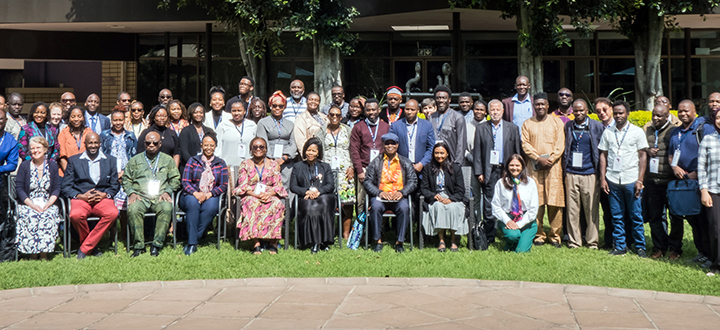 Social policy in post-Covid Africa: In search of an inclusive and equitable architecture
Social policy in post-Covid Africa: In search of an inclusive and equitable architecture
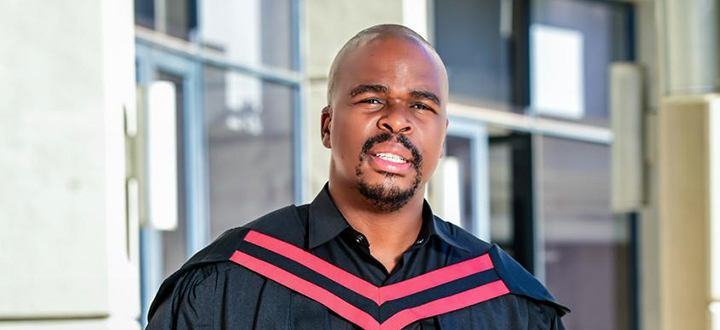 Education in pursuit of social justice
Education in pursuit of social justice
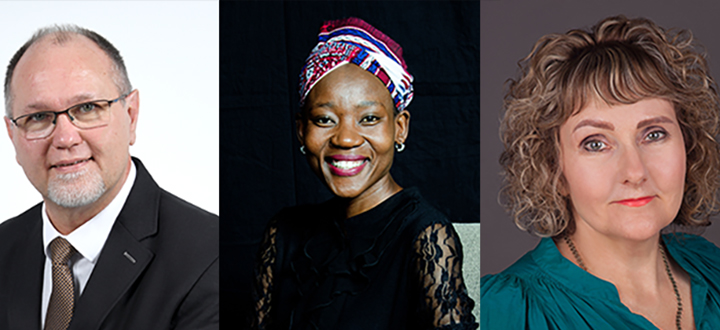 Unisa shows that developing countries are equal partners in research management and administration capacity development
Unisa shows that developing countries are equal partners in research management and administration capacity development
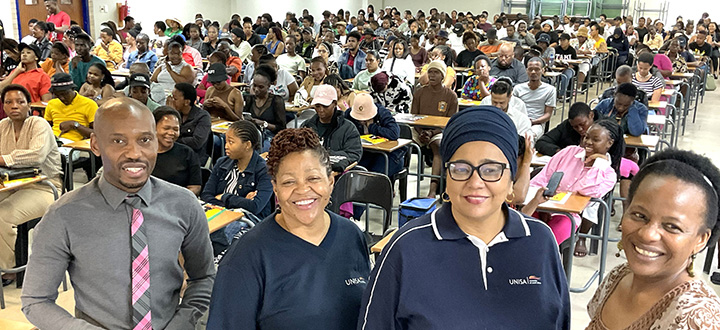 Unisa KZN Career Fair bridges the gap between students and employers
Unisa KZN Career Fair bridges the gap between students and employers
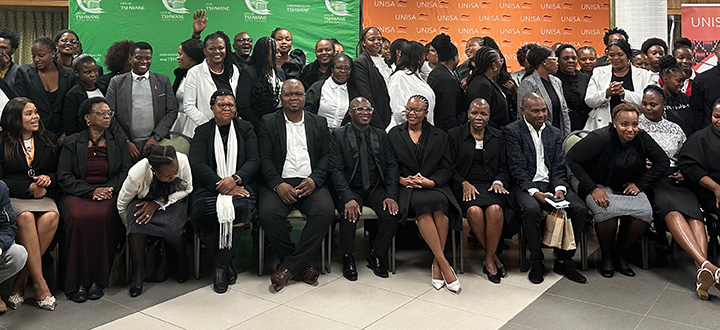 Unisa academics join hands to celebrate World Social Work Day
Unisa academics join hands to celebrate World Social Work Day